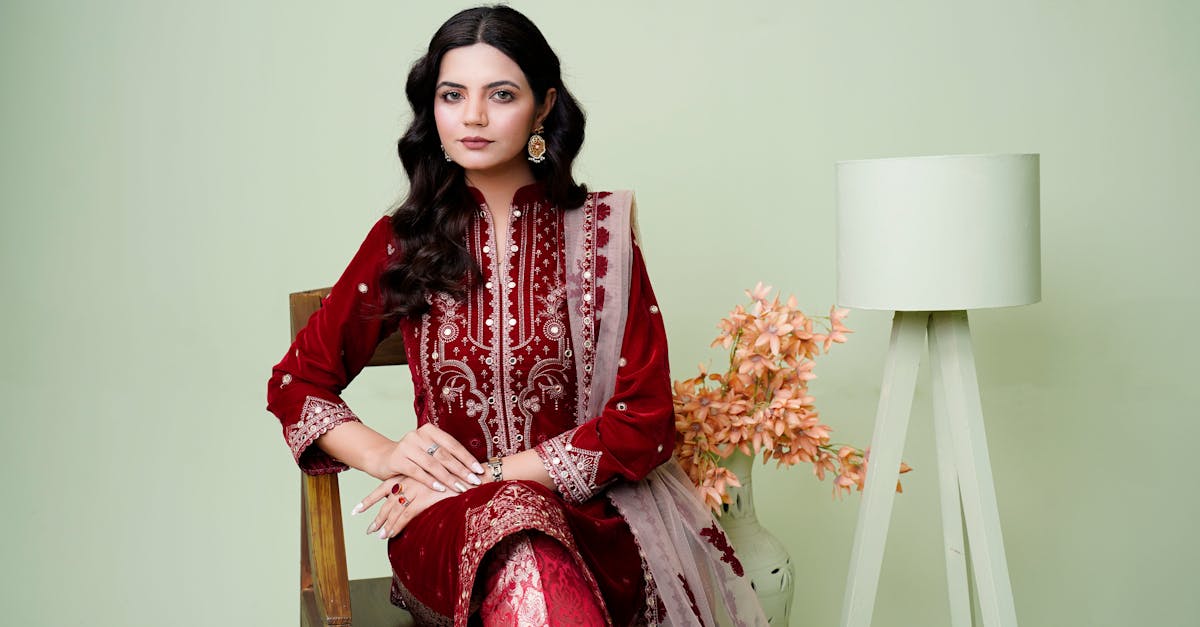Mindful Fashion Journey Navigating Sustainable Style
Introduction to Mindful Fashion
In today's world, the fashion industry is undergoing a revolution that emphasizes sustainability and conscious consumerism. As people become increasingly aware of the environmental and ethical implications of their clothing choices, a movement known as mindful fashion has emerged. This involves making informed decisions about the materials used, the conditions under which garments are produced, and their long-term impact. Mindful fashion is not just a trend; it is a lifestyle choice that promotes ecological balance and social responsibility. This article will take you on a journey through mindful fashion, highlighting its significance, challenges, and benefits. Join us in exploring how this progressive approach to clothing is reshaping the fashion industry and consumer culture.
Advertisement
Understanding Sustainable Fashion
Sustainable fashion represents a commitment to reducing the negative impacts of the fashion industry on the environment and society. It encompasses various practices, such as using eco-friendly materials, adopting ethical manufacturing processes, and promoting slow fashion. Eco-friendly materials include organic cotton, hemp, and recycled polyester, which are less resource-intensive and biodegradable. Ethical manufacturing ensures fair labor practices, offering workers fair wages and safe working conditions. Slow fashion encourages quality over quantity, focusing on creating timeless pieces that stand the test of time rather than fast fashion's transient trends. This holistic approach enables consumers to dress responsibly while reducing their carbon footprint.
Advertisement
The Role of Ethical Consumerism
Ethical consumerism is a vital aspect of the mindful fashion movement, empowering individuals to make purchasing decisions aligned with their values. Consumers are increasingly aware of how their buying habits impact the planet and human rights. By supporting brands that prioritize sustainability and ethical practices, consumers can drive change in the industry. This shift in attitude has prompted numerous fashion brands to adopt transparent practices, where the origins and production methods of garments are clearly communicated. This transparency builds trust, allowing consumers to make informed decisions that reflect their dedication to ethical consumerism.
Advertisement
Challenges in Implementing Mindful Practices
Transitioning to a more sustainable fashion model comes with its share of challenges. First, the infrastructure for recycling textiles is still underdeveloped, making it difficult to reuse or repurpose clothing at scale. Additionally, ethical materials and practices often incur higher production costs, resulting in higher prices for consumers. This price barrier can deter individuals from opting for sustainable options. Furthermore, the fashion industry's deeply ingrained emphasis on mass production and swift trend cycles poses a significant hurdle. Despite these challenges, a growing number of brands are finding innovative ways to tackle these issues and encourage broader adoption of mindful practices.
Advertisement
The Environmental Impact of Fast Fashion
Fast fashion, characterized by inexpensive and rapidly produced clothing, has detrimental effects on the environment. The production and disposal of these garments contribute significantly to pollution, wastage, and resource depletion. Fast fashion relies heavily on non-renewable resources and emits massive amounts of greenhouse gases during production. Additionally, clothing waste accumulates in landfills, taking decades or even centuries to decompose. By understanding the consequences of fast fashion, consumers can appreciate the importance of choosing sustainable alternatives, supporting brands that prioritize eco-friendly practices.
Advertisement
Innovative Approaches to Sustainable Style
Innovations in the fashion industry are paving the way for more sustainable practices and cutting-edge designs. Technological advancements, such as 3D-printing and textile recycling, are being tailored to minimize waste and maximize resource efficiency. Circular fashion, which involves designing products that can be repurposed at the end of their lifecycle, is gaining traction. Brands are experimenting with biodegradable fabrics and zero-waste patterns, significantly reducing the environmental footprint of their collections. These innovative approaches demonstrate that fashion innovation and sustainability can go hand in hand, providing consumers with stylish yet environmentally conscious choices.
Advertisement
Educating and Empowering Consumers
A fundamental objective of the mindful fashion movement is to educate and empower consumers to make sustainable decisions. This involves creating awareness of the adverse effects of fast fashion and the benefits of sustainable alternatives. Workshops, conferences, and online platforms serve as educational tools, allowing consumers to share knowledge, inspiration, and tips for sustainable living. Social media campaigns by influencers and brands help in spreading awareness, encouraging consumers to invest in sustainable fashion. Empowering consumers with information enables them to become advocates for change, influencing others and reinforcing the demand for ethical fashion practices.
Advertisement
Building a Capsule Wardrobe
One popular approach within the mindful fashion journey is the concept of a capsule wardrobe. This involves curating a minimalistic collection of versatile and timeless clothing items that can be mixed and matched. By focusing on quality and functionality, a capsule wardrobe reduces the need for excessive consumption, choosing enduring pieces over transient trends. Creating a capsule wardrobe is not only economically beneficial but also reduces clutter, contributing to a simpler, more mindful lifestyle. As individuals increasingly adopt this approach, they experience firsthand the satisfaction of having a curated wardrobe that reflects their style while prioritizing sustainability.
Advertisement
The Future of Mindful Fashion
The mindful fashion movement is set to reshape the industry's future, with growing consumer demand for transparency, sustainability, and ethical practices. As more brands embrace these principles, the market for conscious clothing will continue to expand, contributing to a greener world. Governments and policymakers play a crucial role by incentivizing sustainable practices and setting industry standards. Collaboration between fashion companies, environmental organizations, and consumers will be instrumental in driving systemic change. As the movement evolves, it encourages not only the industry but also individuals to adopt mindful habits in every aspect of life.
Advertisement
Conclusion on Mindful Fashion Journey
The journey towards mindful fashion is both exciting and essential, offering a thoughtful solution to the concerning environmental and social impacts of the fashion industry. By prioritizing sustainability, ethical consumerism, and innovation, fashion can evolve to meet the needs of both the planet and its people. While challenges remain, a commitment to change by both brands and consumers is reshaping the industry for the better. As more individuals engage with the principles of mindful fashion, they contribute to a more sustainable future for fashion. Embrace the mindful fashion journey and be part of a movement dedicated to enhancing fashion's role in protecting our environment and upholding human dignity.
Advertisement








